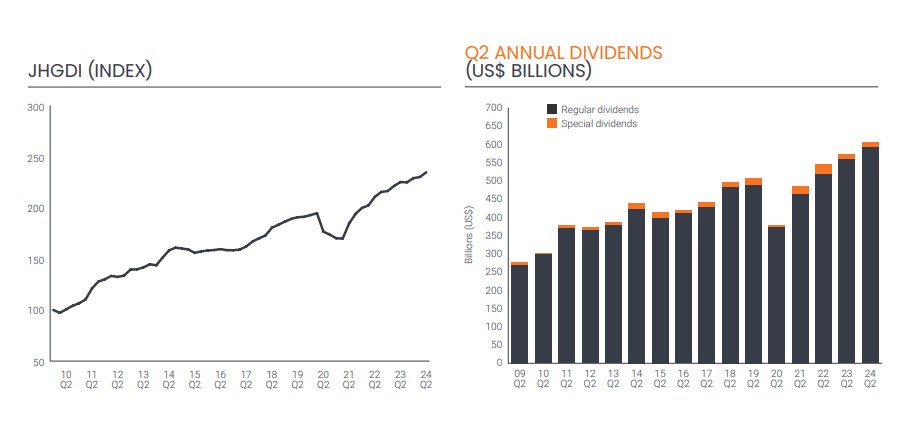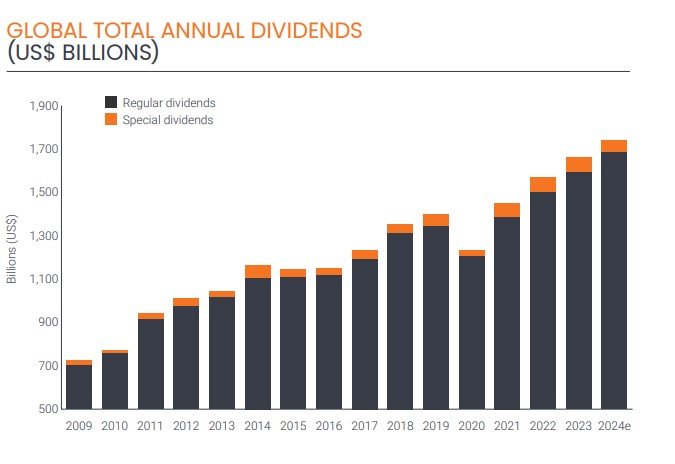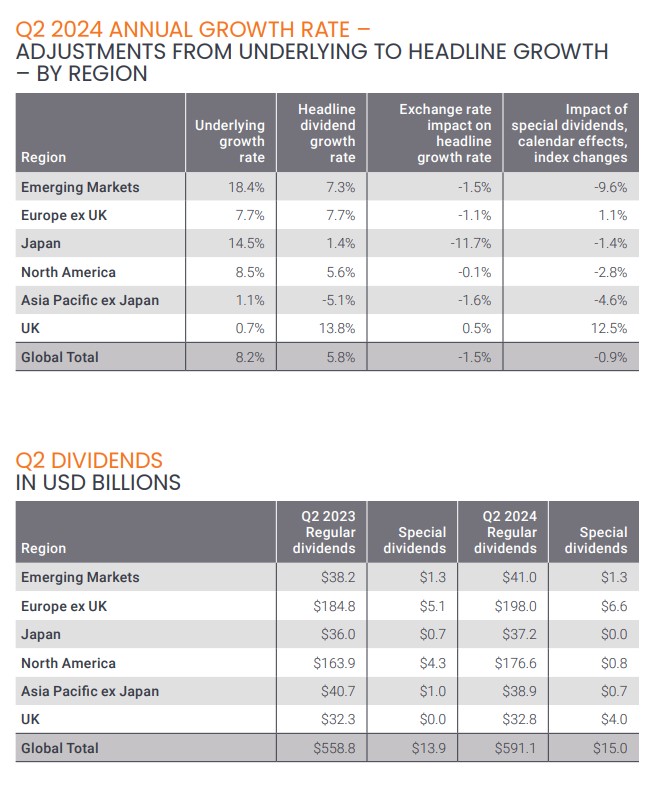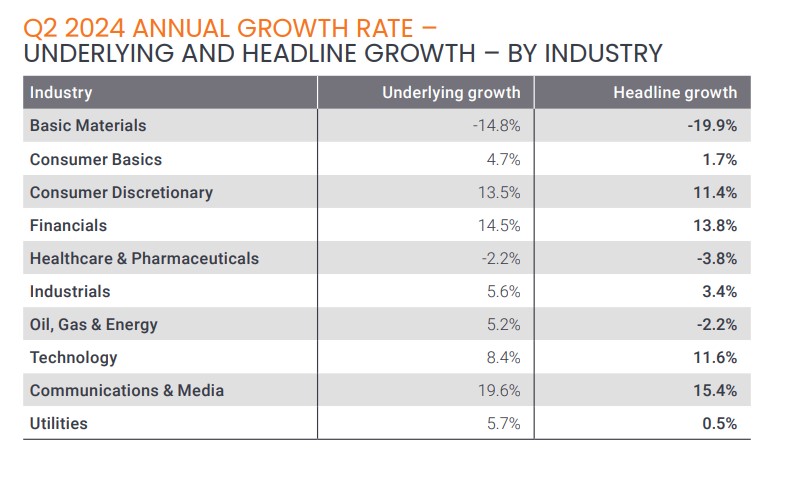Global investors focused on income generation enjoyed a strong second quarter in 2024, according to the latest edition of the Janus Henderson Global Dividend Index. Dividends increased by 5.8% on a headline basis, reaching a record high of $606.1 billion. The underlying growth rate was even higher at 8.2%, after adjusting for currency effects, particularly the weakening of the Japanese yen.
According to the asset manager, the initiation of dividend payments by major U.S. companies such as Meta and Alphabet boosted global growth in the second quarter by 1.1%. However, overall growth was widespread, with 92% of companies worldwide either raising or maintaining their dividends. Additionally, one-third of sectors posted double-digit underlying growth, while dividends declined in only three sectors.


Geographic Analysis
The second quarter is the peak season for dividend payments in Europe. Payouts rose 7.7% year-on-year, reaching a record $204.6 billion for the region. France, Italy, Switzerland, and Spain all saw record dividend payouts. More than half of Europe’s dividend growth came from banks, which have benefited from higher interest rates. In contrast, Germany saw a 1.2% decline in payouts, mainly due to Bayer’s significant dividend cut. In the U.S., dividends increased by 8.6%, with 40% of that growth attributed to Meta and Alphabet paying dividends for the first time.

The second quarter is also seasonally significant in Japan, where dividends increased by around 14% on an underlying basis, setting a new record in yen. However, the weak exchange rate prevented record payouts in dollar terms. Toyota Motor, the largest dividend payer in Japan, made one of the largest increases after reporting record profits in its last fiscal year. Elsewhere in the Asia-Pacific region, dividends remained stable in Hong Kong but fell sharply in Australia due to a cut by Woodside Energy. Singapore, Taiwan, and South Korea all posted double-digit growth.
Sector Analysis
Once again, banks were the primary drivers of dividend growth, accounting for one-third of the underlying year-on-year increase. European banks contributed the most, although this trend was evident globally. Insurers, automakers (especially in Japan), and telecommunications companies also played a significant role in the second quarter’s growth.

Outlook and Trends
Following a strong second quarter, and given the substantial contribution that new dividend payers could make this year, Janus Henderson has raised its 2024 dividend forecast. The asset manager expects companies worldwide to distribute a record $1.74 trillion, marking a 6.4% underlying increase compared to 2023 (up from the 5.0% estimated in the first-quarter report) and a 4.7% headline increase (compared to the previous 3.9% estimate).
“We had optimistic expectations for the second quarter, and the outlook was even brighter than anticipated thanks to the strength in Europe, the U.S., Canada, and Japan. Economies around the world have generally weathered the impact of higher interest rates well. Inflation has slowed, and economic growth has been better than expected. Moreover, companies have proven resilient, with most sectors continuing to invest for future growth. This favorable environment has been especially positive for the banking sector, which enjoys solid margins and limited credit deterioration, boosting profits and generating ample cash for dividends,” said Jane Shoemake, Client Portfolio Manager in the Global Equity Income team at Janus Henderson.
In her view, the initiation of dividend payments by major U.S. media and technology companies such as Meta, Alphabet, and China’s Alibaba, among others, is a highly positive sign that will drive global dividend growth by 1.1 percentage points this year. “These companies are following a well-established path seen in growth sectors over the past two centuries, reaching a stage of maturity where dividends are a natural way to return excess cash to shareholders. By doing so, they have surprised skeptics who believed this group of companies was different. The stock market evolves over time as sectors rise and fall to meet society’s changing needs. Paying dividends will also increase their appeal to investors for whom dividends are a vital part of their investment strategy and could encourage more companies to follow their lead,” Shoemake added.




